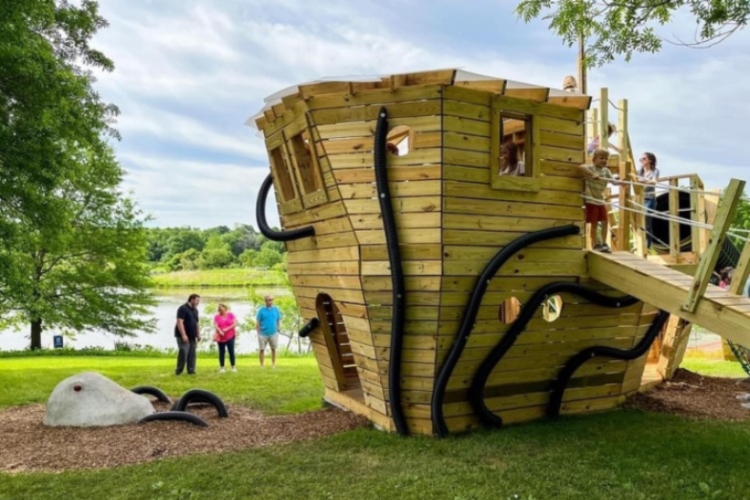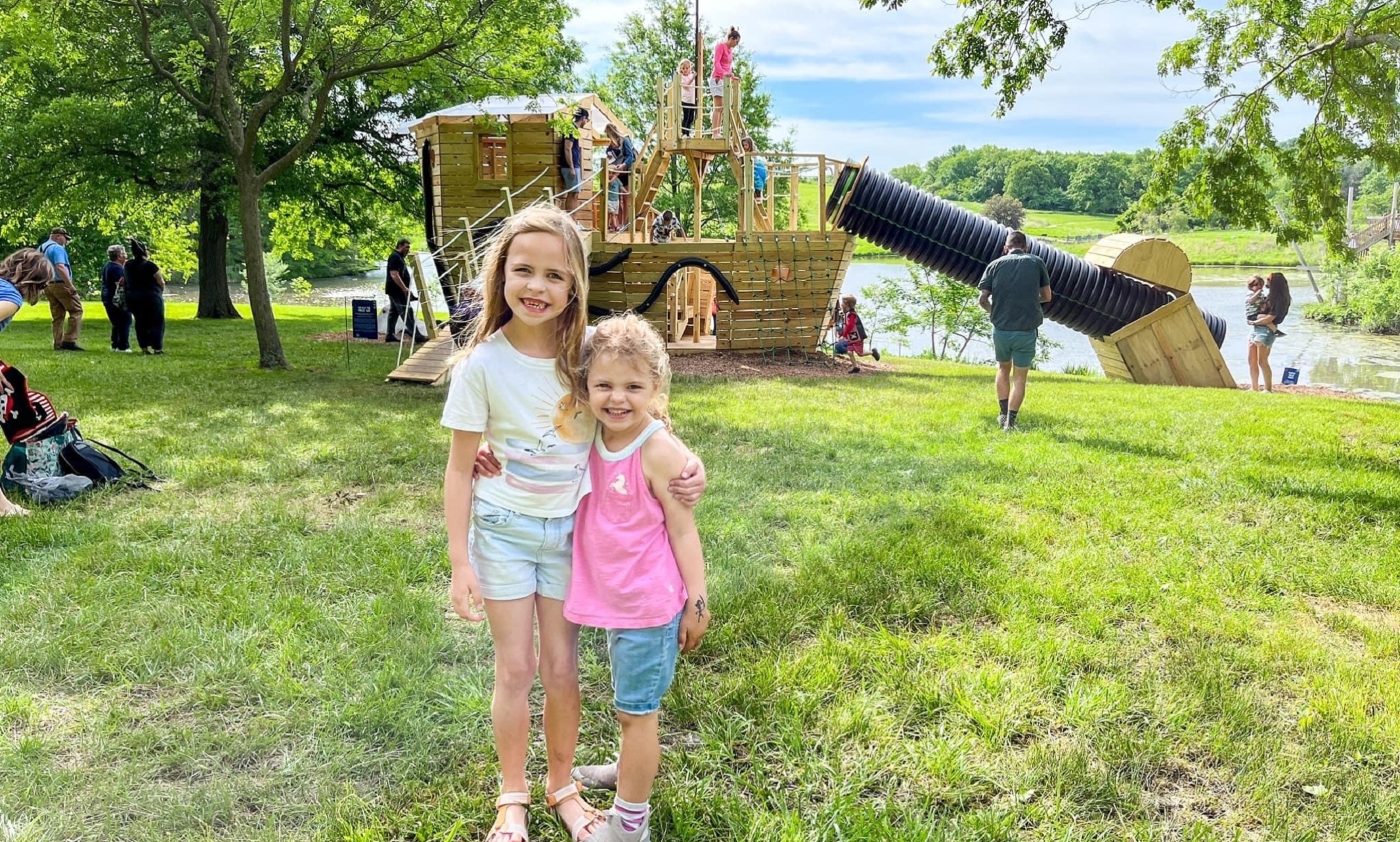Students in the UMKC School of Education and children of the Edgar L. and Rita A. Berkley Child and Family Development Center produced two of the eight winning entries for Fortopia, Powell Gardens outdoor exhibit of forts.
The other six designs chosen by a juried selection process were created by professional garden designers, architects and artists, all adults.
The Fortopia exhibits designed by the two teams are “The Lucky Woodland Find: Morel Fort” and “Skully the Pirate Ship.” Ekaterina Strekalova-Hughes, associate professor of teacher education and curriculum studies, is the team lead for the School of Education Early Childhood Program which produced “Lucky Woodland.”
“’Lucky Woodland’ is a fort inspired by memories of Missouri childhoods that were spent hunting coveted morel mushrooms and playing in forts,” Strekalova-Hughes says. “We wanted to acknowledge the strong connections between childhood play and nature. This resulted in design elements that include a secret reading hideout, see-through mushroom caps that provide a view of the surrounding landscape and log seating area and sculptural leaves for climbing.”
“The children enjoyed creating something out of their collective imagination that they can use and share with other children. They were excited that everyone, even children they don’t know, would get a chance to play.” —
“Lucky Woodland” is designed to engage visitors of all ages. The four-foot-tall chalk wall in Morel 1 allows toddlers and taller visitors to draw at their own height. The interactive sound wall in Morel 2 features music production at different heights as well, so even children who are crawling will have the opportunity to participate in making music.
The team at Powell Gardens has taken the engagement with “Lucky Woodland” a step further.
“We have been so inspired by “The Lucky Woodland Find: Morel Fort” that we are developing a collections tour based on foraging that premiers in alignment with Fortopia. The tour content will be published online through our botanic collection database.”

The concept for “Skully the Pirate Ship” was created by the children in the Zoo Room at the Berkley Center, a component of the School of Education that serves as a learning laboratory for students in early childhood education. Teachers Asia Whisenhunt and Kelly McDonald noticed that the children in their classroom were playing “pirates” almost every day and had been building pirate ships on the playground and in the classroom. They thought it was a natural next step to let the children take the lead in designing a fort based on their play.
“They were in charge of each step of the process,” Whisenhunt says. “They sketched designs, had design meetings, discussed building materials, built prototypes, ultimately agreed on a single plan and approved the final proposal. They were in charge, and we made changes as needed based on their feedback.”
The Berkley Center classrooms engage in project learning, so fort design and construction was a natural fit. There were strong learning components as well.
“This project supported mathematical concepts, language and literacy, communication, social interactions, conduct in a group, among other things,” McDonald says. “The children enjoyed creating something out of their collective imagination that they can use and share with other children. They were excited that everyone, even children they don’t know, would get a chance to play.”
The Fortopia exhibit at Powell Gardens runs from May 26 through October 16, with a member preview May 25.

